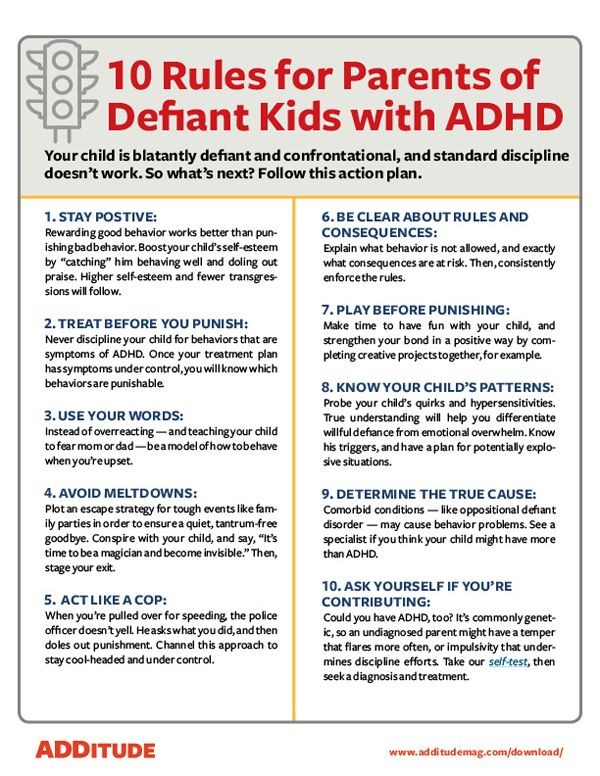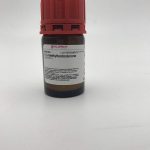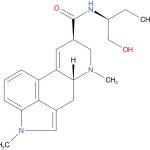
Contents
Parenting a Child With ADHD
Attention deficit hyperactivity disorder (ADHD) is a chronic behavioral condition that manifests in childhood and is characterized by hyperactivity, impulsivity, and/or inattention. Not all patients manifest all three categories of ADHD. These symptoms are associated with difficulties in academic, emotional, and social functioning. Diagnosis is based on specific criteria. ADHD may be associated with other neurological, significant behavioral, and/or developmental/learning disabilities. Treatment includes medication, behavioral therapy, and lifestyle adjustments. ADHD is one of the most common childhood disorders and affects more boys than girls. It is now recognized that many children will continue to experience symptoms that may affect their functioning throughout life.
Signs and Symptoms of Childhood ADHD
Three basic expressions of the disorder are recognized:
- Primarily inattentive: The child has difficulty maintaining focus on tasks or activities.
- Primarily hyperactive-impulsive: The child exhibits impulsive behaviors and inappropriate movement.
- Combined: This combines both inattentive and hyperactive-impulsive behaviors.
The combined type of ADHD is the most common. The predominantly inattentive type is being recognized more, especially in girls and adults. The predominantly hyperactive-impulsive type, without significant attention problems, is rare and commonly seen in boys in early grammar school.
In the United States, ADHD affects about 3%-10% of children.
- Abnormal behaviors are typically established by the age of 7. ADHD is rarely diagnosed in teenagers or young adults. Children with ADHD may have delays in emotional maturity compared to their peers.
- Boys are more likely than girls to be diagnosed with ADHD. However, recognition of the inattentive form of ADHD has increased diagnoses in girls.
- Hyperactive symptoms may decrease with age, usually diminishing at puberty.
- Inattention symptoms are less likely to fade with maturity and tend to remain constant into adulthood.
- People with ADHD are more likely to have a family history of ADHD.
The DSM-V has specific criteria for diagnosing ADHD. Symptoms must be present for at least six months, cause disruption in age-appropriate activities, and occur in at least two settings. Symptoms should also not be better explained by another mental disorder.
Causes of Childhood ADHD
The cause of ADHD is not fully understood. Research suggests differences in brain activity and chemistry, with evidence of a genetic predisposition. ADHD is associated with difficulties in executive function skills, which include shifting mindset, organization, planning, working memory, emotion regulation, and appropriate speech and movements.
What to Do If You Suspect Your Child Has ADHD
Consider seeking evaluation for ADHD if your child exhibits the following behaviors:
- Short attention span and needs frequent teacher intervention to stay on task.
- Avoids work that requires sustained attention.
- Daydreams excessively, hindering task completion.
- Is hyperactive or fidgety.
- Disrupts the classroom and provokes arguments at home.
Evaluation involves medical, developmental, educational, and psychosocial assessments. Gathering feedback from parents and teachers is crucial. Specialized testing may be necessary to assess for learning disorders. No specific test can confirm the diagnosis of ADHD. Schools are required to perform appropriate evaluations for children with suspected disabilities. However, some districts may struggle to provide comprehensive evaluations. Independent evaluations may be necessary, especially for children who are not academically failing but are not reaching their potential.
Diagnosing Childhood ADHD
Pediatricians can manage the initial evaluation of a child with behavioral issues suspicious of ADHD. A physical examination is necessary to rule out medical issues. Gathering information about the child’s strengths and weaknesses, both in behavior and academics, is essential. Specialized testing may be used to evaluate learning disorders and other mental health issues. Once a diagnosis is established, treatment options can be discussed. Children with complicated medical histories may require evaluation by specialists.


